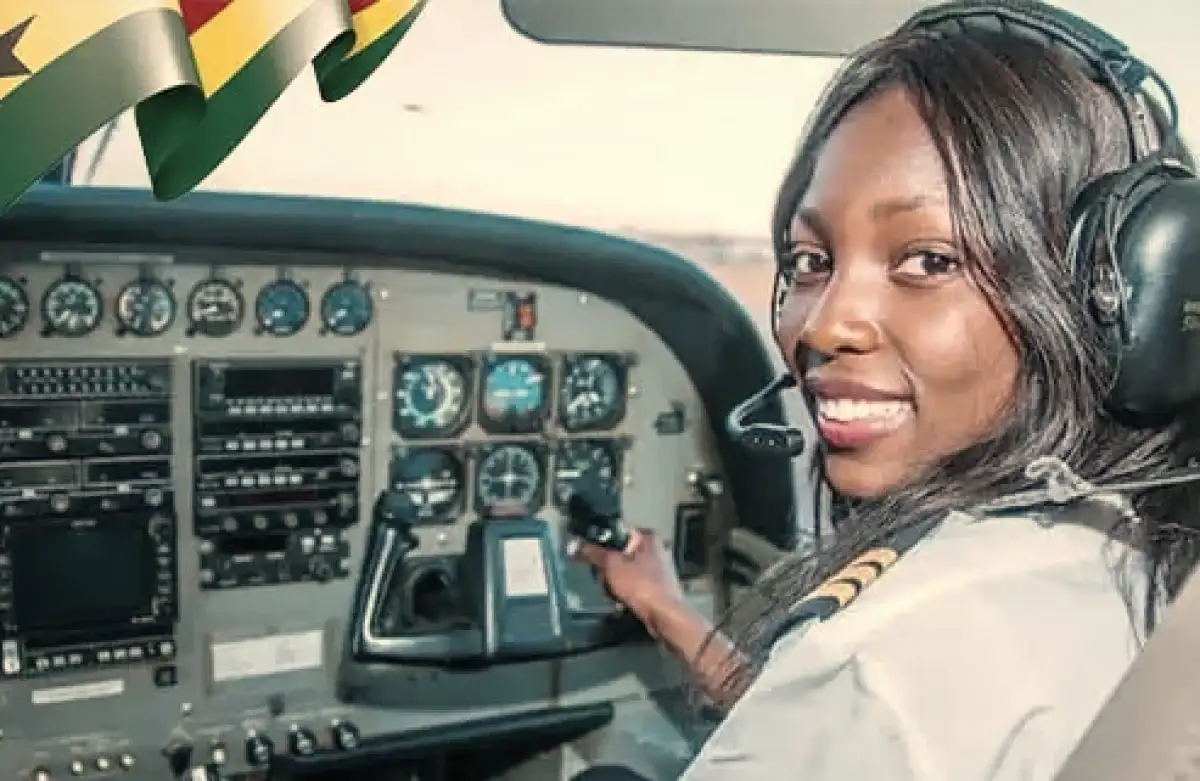Pilots and co-pilots are the people responsible for actually flying aircraft. Communication is key when flying an aircraft because you will liaise with air traffic controllers and other ground staff.
To become an airline pilot in Ghana, you may require a bachelor’s degree, as well as a pilot’s license. However, some pilot aviation careers do not require a degree.
What You Need To Pursue A Career as a Pilot
These are the steps typically required to pursue a career as an airline pilot:
1. Pursue an education
Airline pilots are generally required to hold a bachelor’s degree in aeronautical science or another related field. Perform a search for open airline pilot positions in your geographic area and pursue the level of education required for those commercial airlines.
2. Acquire licenses and certifications
Before you can get a role as an airline pilot, you will need a private pilot license and a commercial pilot license. Obtain your private pilot license in your formal education. You will also need 250 hours of flight time for a commercial pilot license.
3. Obtain experience
To qualify for a role as an airline pilot, you will need a minimum of 1,500 hours of flight time. In order to accumulate these hours, it’s a good idea to obtain a position as a private or commercial pilot. This is for two years before pursuing a role as an airline pilot.
Airline Pilot Requirements
There are several qualifications required to obtain a position as an airline pilot. They include:
- Education
Airlines prefer that their pilots hold a Bachelor’s Degree in Aeronautical Science, Professional Flight, or another closely related field. Students study math, aeronautics, and physics. They must also obtain the flight experience they need to pursue a career as an airline pilot.
Some employers may accept candidates who have an Associate Degree in Aviation Operations, Aviation Technology, or another similar degree at a community college or flight school.
Topics that students cover in these programs include aviation history, flight computers, navigation logs, and flight theory.
- Training
Airline pilots are required to have large amounts of training to qualify for their positions.
To obtain a certificate as an airline pilot, commercial pilots need to have 1,500 hours of flight time. Airline pilots must also have at least 40 hours of instrument flying experience, whether it’s performed in the air or through simulation. This confirms that they can fly safely in low visibility conditions.
When hired, airline pilots are required to complete further training, including six to eight weeks of ground school, and obtain ratings specifically for the aircraft they will be flying.
Airline pilots must also maintain their experience performing specific maneuvers and must undergo periodic additional training every one or two years.
- Certifications
There are several certifications and licenses that pilots must have to be eligible for a position as an airline pilot. They include:
- Commercial pilot license
To become an airline pilot, you must first get your commercial pilot license. Candidates should be at least 18 years old and must pass a physical exam.
They can also train as a private pilot first to learn the basics of flying an airplane. Must also spend 250 hours flying, including as the pilot-in-command and flying solo.
They must also complete instrument training, fly cross-country in both day and nighttime conditions, complete a specific number of takeoffs and landings and pilot a plane with the designated landing gear. And finally, candidates must pass the Federal Aviation Administration (FAA) practical test.
- Instrument rating
To qualify for an instrument rating, candidates must have a current private pilot license and 50 hours of cross-country flight time as the pilot-in-command. Ten of those hours must be in airplanes for an instrument-airplane rating.
Candidates must also have 40 hours of simulated or actual instrument time and 15 hours of instrument flight training in the aircraft category for which they are pursuing an instrument rating.
- First-class medical certificate
This is a written statement from a physician that verifies that they have examined a pilot and that they are of stable mental and physical health. There are three classes of medical certificates. To qualify as an airline pilot, you must have a first-class medical certificate.
- Airline transport pilot (ATP) certification
To qualify for an ATP certificate, you must be at least 23 years old, hold at least a third-class medical certificate, and complete an approved ATP Certification Training Program. The ATP multi-engine airplane test has 125 questions and candidates must pass with a score of 70% or better.
Duties of A Pilot
A pilot’s primary duty is to fly the aircraft from the point of origin to the destination, including takeoff and landing. Commercial airline pilots often have copilots to assist with navigation.
However, in a smaller aircraft, navigating the aircraft is also important, as is monitoring the engines, fuel, and other systems during the flight. Pilots perform pre- and post-flight aircraft inspections.
Pilots must stay in touch with the control tower after departure. Then they contact the destination control tower as they approach to request landing permission and instructions.
They also do well to determine risks that may occur. Pilots also keep accurate records for compliance purposes. They ensure the safety and comfort of the passengers, crew, and aircraft.
